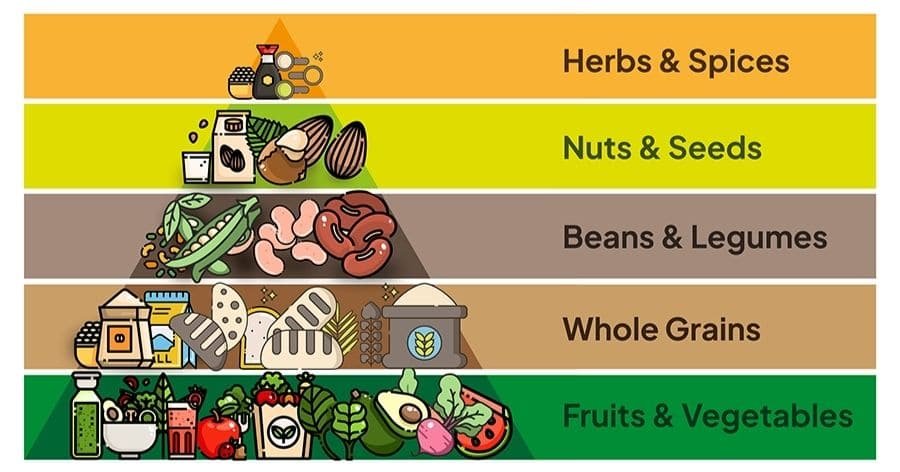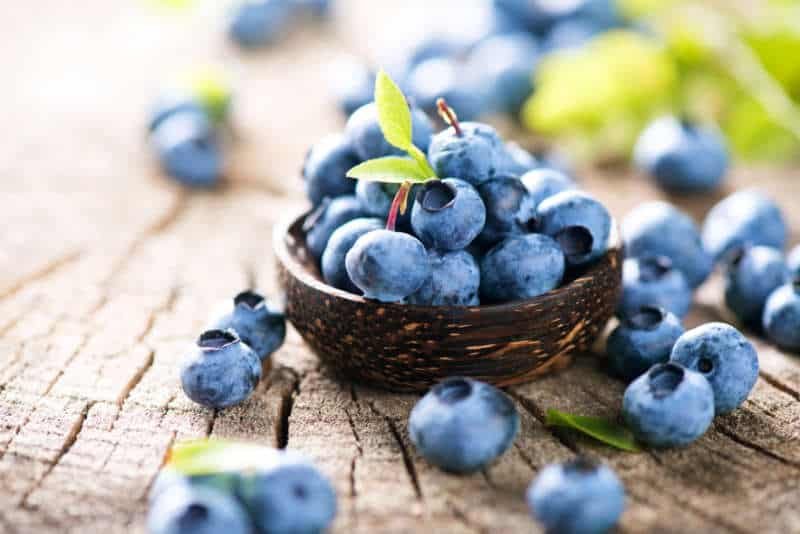Dietary Recommendations


There are some minor differences in approach between the foremost scientists, doctors, and researchers in terms of whole food plant based dietary recommendations. The bigger picture shows that they all point in the same directions: the whole food plant based diet.
Scroll down to read the specific dietary recommendations of four plant-based nutrition pioneers (Dr Campbell, Dr Greger, Dr Esselstyn, and Dr McDougall).
Remember to focus on the 95-98% that they all have in common, rather than the few percent that makes them slightly different.
The main principle is to maximize the intake of whole, plant foods.
Dr Campbell’s Dietary Recommendations
Go to page 243 for a complete food chart of Colin Campbell’s book The China Study.
It is very comprehensive and based on years of revolutionary research in a variety of settings.
Dr Campbell starts by saying: “Eat all you want (while getting lots of variety) of any whole, unrefined plant-based food.”
Let’s take a look at Dr Campbell’s nutritional recommendations.
-
Fruits (orange, okra, kiwi, red pepper, apple, cucumber, tomato, avocado, zucchini, blueberries, strawberries, green pepper, raspberries, butternut squash, pumpkin, blackberries, mangoes, eggplant, pear, watermelon, cranberries, acorn squash, papaya, grapefruit, peach)
-
Vegetables
-Flowers (broccoli, cauliflower)
-Stems and Leaves (spinach, artichokes, kale, lettuce (all varieties), cabbage, Swiss Chard, collard greens, celery, asparagus, mustard greens, brussels sprouts, turnip greens, beet greens, bok choi, arugula, Belgian endive, basil, cilantro, parsley, rhubarb, seaweed)
-Roots (potatoes (all varieties), beets, carrots, turnips, onions, garlic, ginger, leeks, radish, rutabaga)
-Legumes (green beans, soybeans, peas, peanuts, adzuki beans, black beans, black-eyed peas, cannellini peas, garbanzo beans, kidney beans, lentils, pinto beans, white beans)
-Mushrooms (white button, baby bella, cremini, Portobello, shiitake, oyster)
-Nuts (walnuts, almonds, macadamia, pecans, cashew, hazelnut, pistachio) -
Whole grains – in bread, pasta, etc. (wheat, rice, corn, millet, sorghum, rye, oats, barley, teff, buckwheat, amaranth, quinoa, kamut, spelt)

Dr Campbell then mentions examples of foods to minimize:
-
Refined carbohydrates (pasta (except whole-grain varieties), white bread, crackers, sugars, and most cakes and pastries)
-
Added vegetable oils (corn oil, peanut oil, olive oil)
-
Fish (salmon, tuna, cod)
Dr Campbell concludes with a list of foods to avoid altogether:
-
Meat (steak, hamburger, lard)
-
Poultry (chicken, turkey)
-
Dairy (cheese, milk, yogurt)
-
Eggs (eggs & products with a high egg content, for example mayonnaise)
Learn how to live Whole Food Plant-Based
Are you ready to to make the dietary change?

Dr Greger’s Dietary Recommendations
Dr Greger’s book How Not To Die and his NutritionFacts website are modern-day encyclopedia’s of just about any food & health topic you can think of.
Any statement that is made by Dr Greger is backed up by scientific evidence.
To give you an idea of this: How Not To Die contains 562 pages, of which just over 150 are just references!
Dr Greger’s dietary recommendations is arguably the most complete and thorough evidence of the relation between food and health/disease.
Dr Greger’s nutrition recommendations are comprehensive and includes B12.
He writes: “The balance of scientific evidence suggests that the healthiest way to eat is a vitamin B12-fortified diet of whole plant foods. For optimum nutrition, we should be sure to include in our daily diet not only an array of whole grains, beans, nuts, seeds, fruit, and as many vegetables as we can eat, but also specifically dark green leafy vegetables, berries, and white (or green) tea.”
Dr Greger also mentions some specific additions to the whole plant food diet. In summary:
-
Vitamin B12 supplement: 2,500 mcg (µg) cyanocobalamin at least once a week, or 150 mcg cyanocobalamin once a day.
-
Omega-3 fatty acids: 250 mg pollutant-free (yeast- or algae-derived) long-chain omega-3’s (EPA/DHA) every day.
-
Vitamin D (depending on where you live, how much exposure you have to the sun and the time of the year)
-
Calcium: 600 mg each day from plant sources (eat your greens!).
-
Iodine: 150 mcg supplement every day, unless you are consuming iodized salt or seaweed.
-
Iron: menstruating women should pay specific attention to combining iron and vitamin C rich plant foods.
-
Selenium: A particular recommendation for Northern Europeans, as they may need to consume a selenium supplement or eat a Brazil nut daily.
Besides, Dr. Greger has a free mobile phone app called the Daily Dozen, which is an excellent reminder of what (and how much) we should strive to eat each day.
Dr Esselstyn’s Dietary Recommendations
On page 70-75 of Prevent And Reverse Heart Disease, Dr Esselstyn lays out his list of dietary recommendations based on years of research with heart disease patients.
This is the heart attack-proof diet.

Five types of foods/drinks that are okay to consume:
-
Vegetables – avocados are an exception since these are high in fat. Cardiac patients should not consume any avocados. People without heart disease can consume avocados as long as cholesterol levels are not elevated.
-
Legumes
-
Whole grains
-
Fruits – limit fruit consumption to 3 pieces per day, and avoid pure fruit juices.
-
Beverages – Water, tea, coffee, oat milk, no-fat soy milk. Alcohol in moderation is okay.
Also, Dr Esselstyn recommends the following supplements:
-
Vitamin B12 – preferably 1000 micrograms daily
-
Vitamin D3 – there is no need for a D3 supplement if the blood levels are good. If not, 1000-2000 IU supplement daily is recommended until the blood levels are normal again
-
Omega-3 fatty acids – the daily needs can be reached by consuming 1-2 tablespoons of ground flax seeds or 1-2 tablespoons of chia seeds.
-
Cholesterol-lowering drugs – under the supervision of your doctor. Cardiac patients will likely see a quick drop in cholesterol once shifting to Dr. Esselstyn’s dietary recommendations. The plant-based diet, along with the cholesterol-lowering drugs, usually takes the cholesterol level to below 150 mg/dL within fourteen days.
These are the foods to avoid:
-
Anything with a face or a mother
-
Dairy products
-
Oils – yes, also no virgin olive oil!
-
Refined grains – for example, white rice and white flour products
-
Nuts – no nuts for heart disease patients. Non-heart disease patients can consume walnuts in moderation. Dr. Esselstyn is very wary of nuts. Even though short-term studies show some benefit of nuts for lowering cholesterol, Dr. Esselstyn mentions that he doesn’t know any long-term nut studies in which heart disease is arrested and reversed. Nuts contain high levels of fat and can easily be consumed in excess, potentially leading to increased cholesterol levels.
-
Salt
Dr McDougall’s Dietary Recommendations
Dr McDougall promotes a starch-based diet, which is a diet with an emphasis on starchy foods like rice, potatoes, or quinoa.
It is a whole food plant based diet, with just some minor differences to the recommendations of Dr Campbell, Dr Esselstyn, and Dr Greger.
On page 189 of The Starch Solution, Dr McDougall says the following:
The cardinal rule of the Starch Solution is that you must center the food on your plate around starches, adding color and flavor with nonstarchy vegetables and fruits. Use fat-free seasonings and sauces generously to add variety to your meals and make them more interesting.
— Dr Campbell (The China Study, page 73)

Starchy foods:
-
Whole grains
Barley, brown rice, bulgur wheat, corn, farro, millet, oats, rye, spelt, triticale, and wheat berries. With these grains, you can make and the following foods: Bread, tortilla, flatbread, pasta, couscous, and whole cereal grains are examples of products made of these grains. -
Legumes
Dried beans (adzuki, cranberry, black, cannellini, fava, chickpeas, great northern, kidney, lima, mung, navy, pinto, soy, white beans)
Peas (black-eyed peas, split peas, whole yellow peas, green peas)
Lentils (green, red, brown) -
Starch vegetables
Potatoes, sweet potatoes, pumpkin, butternut, acorn, buttercup, Hubbard, kabocha cassava, burdock, taro, yams.
Nonstarchy foods:
-
Green, yellow, orange and multicolored vegetables
-
All fruits
Foods to avoid:
-
Meat (ie, beef, pork, lamb)
-
Poultry (ie, chicken, turkey, duck)
-
Fish and shellfish
-
Dairy (milk, cheese, yogurt, sour cream)
-
Eggs
-
Animal fats (ie lard and butter)
-
Vegetable or plant oils (including olive, corn, flaxseed, canola, and safflower)
-
Processed and packaged foods, except for the ones containing only permitted ingredients
Some plant foods may slow progress for those people who want to lose weight, or for those who have a chronic disease.
Dr. McDougall recommends those people to avoid these foods. Otherwise, small quantities of these foods can be added to the starch-based diet:
-
Avocados
-
Dried fruits
-
Flours (whole grain, white, all-purpose)
-
Fruit and vegetable juices
-
Nuts
-
Peanuts and peanut butter
-
Seeds
-
Simple sugars (i.e., table sugar, maple syrup, molasses, agave)
Note: Dr McDougall recommends people to add a little sugar and salt to their starch-based meals for flavor.
Shouldn’t we be avoiding salt and sugar?
On page 172 of The Starch Solution, he says: “Scapegoating salt and sugar deflects attention from the real problems: meat, dairy, fats, oils, and processed foods.“
The idea here is that starches are the core of the diet, and if a little salt and sugar encourage you to eat starches, then it’s okay to add them to your meals.
Keeping in mind that salt and sugar itself do not hold the key to good health.
Book Your Coaching Session
We offer plant-based coaching sessions for those who want to transition to a Whole Food Plant Based lifestyle, or to those who have already started but are facing challenges. The coaching sessions are aimed at offering motivational and practical advice such as cooking, shopping, family challenges, going out for dinner, overcoming psychological challenges, changing habits, and more. Note: No medical advice is given in the consults.

Get Started!
When you transition to a Whole Food Plant Based lifestyle, all sorts of challenges appear on the path. If you are really serious about this, you may need to give up some of your favorite foods and flavors and try to replace them for new ones. You may feel limited at first, but you’ll be surprised by the variety of new foods and flavors. To help you get started, we’ve put together a list of 5 simple food tips.
